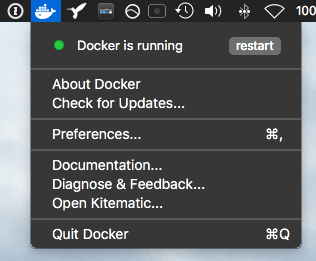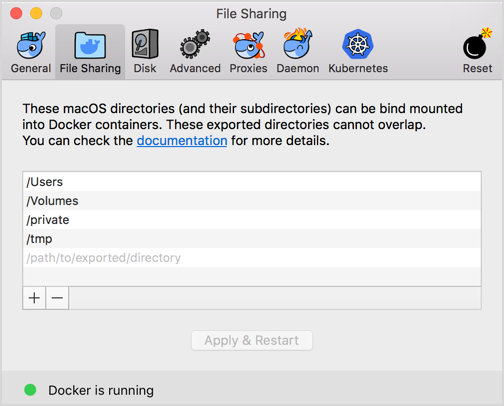
- #Docker for mac vs tollbox how to
- #Docker for mac vs tollbox code
- #Docker for mac vs tollbox professional
- #Docker for mac vs tollbox windows
Why? Because read-only is mostly on containers side, and we make a lot of writes from host.

In this scenario, the best option is to use “cached” method.
#Docker for mac vs tollbox code
Second case is when we modify code frequently on host and read these changes on our containers. Containers will make and see all changes immediately, for host is not important and we can skip that. Maybe we want backup this data? It’s read-only operation, we will not do any changes from host perspective, so we don’t need to reflect them on containers. First case: we have database container (maybe MySQL, maybe Mongo, maybe PostgreSQL) and we store all data on volume – named to save data in case of container restart, or host because we want to specify path manually, it doesn’t matter. The documentation should be clear, but doesn’t provide any real usage examples, so I decided to explain that. The question is: what method should we use? Of course, it depends. my-cached-volume:/var/volume1:cached Differences and choiceĪnd it’s all, all I/O operations on both volumes should be now much faster and with less impact on overall host and Docker performance. Ok, we can use them simply as volume option, for example: - my-delegated-volume:/var/volume2:delegated As such, cached typically improves the performance of read-heavy workloads, at the cost of some temporary inconsistency between the host and the container. The cached configuration provides all the guarantees of the delegated configuration, and some additional guarantees around the visibility of writes performed by containers. In situations such as NFS asynchronous mode, if a running container with a delegated bind mount crashes, then writes may be lost. For directories mounted with delegated the container’s view of the file system is authoritative, and writes performed by containers may not be immediately reflected on the host file system. The delegated configuration provides the weakest set of guarantees. According to official Docker documentation (April 2020): Delegated These two methods are “cached” and “delegated”. The problem is, that in default configuration, volumes always ensure data consistency between host and containers: if you save something on host or container, changes are immediately reflected on second side, it also protects against data loss.ĭocker provides two methods for caching and speed up: both doesn’t provide such consistency but can improve performance a lot.
#Docker for mac vs tollbox windows
It means, it’s also performance degradation, especially on Windows and Mac (it can work much better on Linux with native kernel and many system files). But, it’s I/O, sometimes light, sometimes heavy and intensive. There are plenty of use cases for volumes. We use a lot of volumes typically – to share config, to share code, to provide backups, to link some resources. If you use Docker and you have ever experienced any performance issues, you probably know, what is volumes caching. This post is about volumes cachings methods – we can use them to speed up Docker in any platform and should be used, if we can do this. It’s ok and necessary, but always causes some performance degradation, especially on networking and any I/O operations. Docker for Mac and Docker of Windows uses small virtual machine in the middle, between your host and your containers. From my perspective, the biggest is performance. Unfortunately, I use it on Mac, and it has some big drawbacks. It has a lot of advantages and I have been using it very actively for some time.

#Docker for mac vs tollbox how to
This page gathers resources on how to install and use Docker on Debian.Docker is amazing tool and can make developer work simpler, faster and more efficient.

This Page gathers resources about the installation and basic usage of Docker on Ubuntu.
#Docker for mac vs tollbox professional

That's not true, Windows has its own container technologies, building on Docker but giving it a uniquely Microsoft spin.


 0 kommentar(er)
0 kommentar(er)
